
Practical Laboratory Medicine
Scope & Guideline
Championing Interdisciplinary Advances in Laboratory Practices
Introduction
Aims and Scopes
- Analytical Performance Evaluation:
The journal emphasizes the assessment of analytical performance across various laboratory tests and diagnostic methods, ensuring accuracy, precision, and reliability in clinical settings. - Innovative Diagnostic Techniques:
Research related to the development and validation of novel diagnostic assays and technologies is a core focus, highlighting advancements in molecular diagnostics, immunoassays, and point-of-care testing. - Clinical Applications and Implications:
The journal also explores the clinical relevance of laboratory findings, including their impact on disease diagnosis, monitoring, and treatment strategies, ensuring that laboratory medicine remains patient-centered. - Quality Assurance and Standardization:
A consistent emphasis is placed on quality assurance practices, including external quality assessment programs and standardization of laboratory methods to enhance the reliability of test results. - Translational Research in Laboratory Medicine:
The journal aims to translate laboratory discoveries into clinical practice, fostering research that connects laboratory findings with real-world application in patient management.
Trending and Emerging
- Point-of-Care Testing Innovations:
There is a growing trend towards the development and validation of point-of-care testing (POCT) devices, which enhance the accessibility and speed of diagnostic results in various healthcare settings. - Integration of Artificial Intelligence and Machine Learning:
Research exploring the application of AI and machine learning in laboratory diagnostics is on the rise, indicating a shift towards data-driven approaches that improve diagnostic accuracy and efficiency. - Molecular Diagnostics and Genomic Testing:
The emergence of molecular diagnostics, including next-generation sequencing and genomic testing, is increasingly prominent, reflecting advancements in precision medicine and personalized treatment strategies. - Quality Improvement Initiatives:
A significant trend is the focus on quality improvement initiatives within laboratory practices, including the implementation of Six Sigma methodologies and external quality assessment programs to enhance testing reliability. - Multi-Omics Approaches:
There is an emerging interest in multi-omics approaches that integrate data from genomics, proteomics, and metabolomics to provide comprehensive insights into disease mechanisms and patient care.
Declining or Waning
- Traditional Biochemical Assays:
There is a noticeable decline in studies focusing solely on traditional biochemical assays, as newer technologies and methods gain prominence in laboratory medicine. - Basic Research without Clinical Relevance:
Research that lacks direct clinical implications or translational value appears to be less frequent, indicating a shift towards studies that directly impact patient care and management. - Standalone Laboratory Techniques:
The journal is seeing a decrease in papers that focus on isolated laboratory techniques without integration into broader diagnostic or clinical pathways, reflecting a trend towards interdisciplinary approaches. - Overly Specific Niche Studies:
Research that targets very niche laboratory methods or specific populations without broader applicability is waning, as the journal seeks studies with wider relevance. - Historical Reviews and Meta-analyses:
There has been a reduction in the publication of historical reviews or meta-analyses that do not contribute new insights or data to the field, suggesting a preference for original research that presents novel findings.
Similar Journals
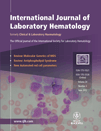
International Journal of Laboratory Hematology
Connecting research and practice for the future of laboratory hematology.The International Journal of Laboratory Hematology, published by WILEY, serves as a vital resource in the field of hematology, delivering high-quality research findings and innovations within laboratory practices since its inception in 2007. This journal, accessible under Open Access options, showcases cutting-edge studies that span critical aspects of biochemistry and clinical laboratory methodologies. With a notable impact factor reflected in its Q2 and Q3 rankings across various categories—such as Biochemistry (medical) and Hematology—this journal stands out within the Scopus rankings, positioning itself within the 60th and 59th percentiles of its respective fields. Situated in the United Kingdom, the journal's objectives lie in disseminating pivotal research that enhances our understanding of hematological disorders and laboratory techniques, making it an essential tool for researchers, professionals, and students alike who are committed to advancing the science of laboratory hematology and its applications.

Biochemia Medica
Advancing the Frontiers of Medical BiochemistryBiochemia Medica is a premier open-access journal that has been at the forefront of advancing knowledge in the fields of medical biochemistry and laboratory medicine since its inception in 2006. Published by the Croatian Society of Medical Biochemistry & Laboratory Medicine, this journal serves a vital role in disseminating high-quality research findings and reviews that contribute to the understanding of biochemical processes in health and disease. With an impressive performance in the Scopus ranking, it holds a Q2 quartile category in both medical biochemistry and clinical biochemistry for 2023, reflecting its commitment to scholarly excellence and relevance in the field. As an open-access journal, Biochemia Medica ensures that research is freely accessible, fostering collaboration and innovation among researchers, healthcare professionals, and students globally. Positioned within a rapidly evolving scientific landscape, this journal is dedicated to bridging the gap between laboratory research and clinical application, making it an indispensable resource for anyone interested in the intersections of biochemistry and medicine.

Journal of Mass Spectrometry and Advances in the Clinical Lab
Fostering Collaboration in Laboratory SciencesJournal of Mass Spectrometry and Advances in the Clinical Lab, published by Elsevier, serves as a premier resource within the fields of clinical biochemistry, medical laboratory technology, microbiology, and spectroscopy. Launched in 2021 with an Open Access model, this journal enhances the accessibility of innovative research, making it an ideal platform for researchers, practitioners, and students alike. With an impressive impact factor reflected in its quartile rankings—Q2 in Clinical Biochemistry and Microbiology, and Q1 in Medical Laboratory Technology and Spectroscopy—this journal ensures high visibility and credibility. The journal's diverse indexing and significant standings in Scopus rankings highlight its commitment to advancing knowledge and fostering collaboration among professionals in laboratory sciences. Endorsed by a robust editorial board comprising leading experts, the journal aims to disseminate cutting-edge findings and methodologies, contributing to significant advancements in clinical and scientific laboratory practices. By bridging theoretical frameworks and practical applications, this journal plays a crucial role in the continuous evolution of laboratory technologies, thereby empowering readers to push the boundaries of research and innovation in their fields.
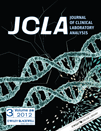
JOURNAL OF CLINICAL LABORATORY ANALYSIS
Exploring the frontiers of clinical laboratory practices.JOURNAL OF CLINICAL LABORATORY ANALYSIS is a premier, peer-reviewed journal published by WILEY, focusing on the expansive field of laboratory medicine. With its ISSN 0887-8013 and E-ISSN 1098-2825, this open access journal has been serving the scientific community since 1987. As of 2023, it holds a notable impact in various domains, achieving category quartiles in Biochemistry, Clinical Biochemistry, Hematology, and more, showcasing its significance across multiple disciplines such as Medical Laboratory Technology and Public Health. Ranked impressively, it is placed 7th in Medical Laboratory Technology, reflecting its crucial role in advancing clinical practice and research. The journal aims to disseminate innovative research findings, methodologies, and reviews that can catalyze advancements in laboratory practices and improve patient outcomes. Accessible to a global audience since its transition to open access in 2019, the journal is not just limited to professionals but is also a valuable resource for students and researchers seeking to stay updated in this dynamic field. For more information, visit the journal's website.
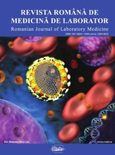
Revista Romana de Medicina de Laborator
Empowering Knowledge in Laboratory PracticesRevista Romana de Medicina de Laborator is a prominent open-access journal published by SCIENDO, dedicated to the field of medical laboratory technology and biochemistry. Since its inception, this journal has been a vital platform for disseminating research findings and advancements in laboratory medicine. With an ISSN of 1841-6624 and E-ISSN 2284-5623, it has served the academic community since 2008 and has embraced an open-access model since 2013, ensuring that valuable research is accessible to all. While it features niche rankings in Scopus for areas such as Medical Laboratory Technology and Clinical Biochemistry, it consistently strives to engage researchers, professionals, and students. Its rich collection of articles highlights innovative techniques and methodologies, supporting the ongoing development of laboratory practices. Although its coverage in Scopus has been discontinued, the journal continues to publish high-quality studies that contribute significantly to the field, fostering knowledge exchange essential for advancing medical science.
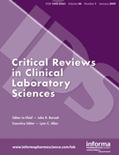
CRITICAL REVIEWS IN CLINICAL LABORATORY SCIENCES
Navigating the Complexities of Laboratory SciencesCRITICAL REVIEWS IN CLINICAL LABORATORY SCIENCES, published by Taylor & Francis Ltd, stands as a premier journal in the field of clinical laboratory science, addressing pivotal advancements and challenges since its inception in 1970. With a commendable impact factor derived from its ranking in Q1 categories across multiple disciplines—including Biochemistry, Genetics and Molecular Biology, and Clinical Biochemistry—this journal is a critical resource for researchers, clinicians, and educators aiming to deepen their understanding and application of laboratory science. The journal's rigorous peer-review process ensures that only the highest quality research is published, providing a platform for profound discussions that influence laboratory practices globally. Although not an open-access journal, it offers various subscription options to facilitate access to its wealth of knowledge. Operating out of Abingdon, England, CRITICAL REVIEWS IN CLINICAL LABORATORY SCIENCES continues to shape the future of clinical biochemistry and laboratory research through its insightful articles, systematic reviews, and expert commentaries, making it an essential read for professionals eager to stay at the forefront of their field.
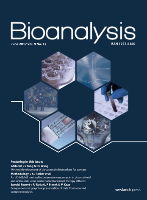
Bioanalysis
Transforming healthcare through rigorous bioanalysis.Bioanalysis is a distinguished journal published by Taylor & Francis Ltd, dedicated to advancing the field of analytical and clinical biochemistry. Established in 2009, this journal has become a pivotal platform for high-quality, peer-reviewed research that explores innovative techniques in bioanalytical sciences, appealing to researchers, professionals, and students alike. With an impressive impact factor and ranked in the Q2 and Q3 quartiles across various categories, including Clinical Biochemistry and Pharmacology, Toxicology and Pharmaceutics, Bioanalysis serves as an essential resource for the latest developments in the interdisciplinary aspects of medicine and laboratory technology. While it does not currently offer open access, the journal is indexed in Scopus, ensuring visibility and accessibility to a global audience. The publication's commitment to enhancing knowledge in this vital area of research underscores its significance in fostering advancements that can lead to improved healthcare outcomes.
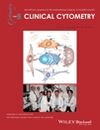
CYTOMETRY PART B-CLINICAL CYTOMETRY
Transforming diagnostics with cutting-edge cytometry research.CYTOMETRY PART B-CLINICAL CYTOMETRY, published by Wiley, is a premier journal dedicated to advancing the field of cytometry with a specific focus on its clinical applications. With an impact factor reflective of its influential role in the scientific community, this journal serves as an essential resource for researchers, professionals, and students keen on exploring the latest developments in pathology, histology, and cell biology. The journal holds impressive rankings—Q1 in Pathology and Forensic Medicine and Q2 in Histology—illustrating its critical standing within the academic landscape. Covering a wide array of topics from clinical techniques to innovative applications in cytometry, it aims to disseminate high-quality research findings that contribute to enhanced diagnostic and therapeutic strategies. As an Open Access journal, it ensures that its valuable content reaches a broader audience, facilitating knowledge-sharing and fostering collaborations across interdisciplinary fields. Since its inception in 2002, CYTOMETRY PART B continues to shape the future of clinical cytometry, making significant contributions to both academia and clinical practice.

IN VIVO
Unveiling the complexities of life sciences for a healthier tomorrow.IN VIVO is a prestigious academic journal published by the International Institute of Anticancer Research, dedicated to advancing the fields of biochemistry, genetics, molecular biology, cancer research, and pharmacology. With its ISSN 0258-851X and E-ISSN 1791-7549, this journal has been a key contributor to innovative research since its inception in 1987, providing a crucial platform for the dissemination of significant findings in its scope. With an impressive impact reflected in its quartile rankings (Q2 in Biochemistry, Genetics and Molecular Biology and Medicine; Q3 in Cancer Research and Pharmacology), IN VIVO reaches a global audience comprising researchers, health professionals, and students. Although it operates on a subscription basis, the journal’s commitment to scientific excellence and rigorous peer review ensures that all published works maintain high quality and relevance. Notably positioned in Scopus ranks within the 36th to 59th percentiles across various categories, IN VIVO continues to be a vital resource for cutting-edge research and developments, solidifying its importance within the scientific community.
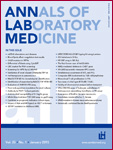
Annals of Laboratory Medicine
Connecting Experts for Enhanced Laboratory SolutionsAnnals of Laboratory Medicine, published by the KOREAN SOC LABORATORY MEDICINE, stands as a pivotal resource for researchers and practitioners in the fields of clinical and medical biochemistry. With a strong Q2 ranking in both Biochemistry (medical) and Clinical Biochemistry, along with a prestigious Q1 status in miscellaneous Medicine categories, this journal emphasizes the significance of laboratory medicine in improving patient outcomes and advancing scientific understanding. Established in 2012, the journal has demonstrated an impressive trajectory of growth and scholarly contribution, making it a reliable source of high-quality research and insightful reviews. The journal utilizes open access, enhancing the reach of its findings across the global scientific community. Operating from South Korea, Annals of Laboratory Medicine aims to foster dialogue and collaboration among professionals, contributing to the continuous advancement of laboratory methodologies and diagnostics.